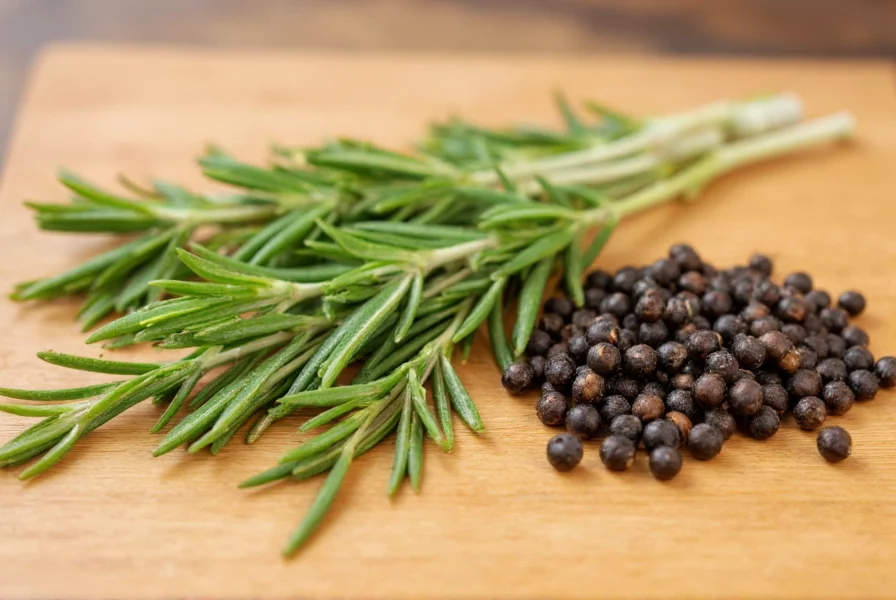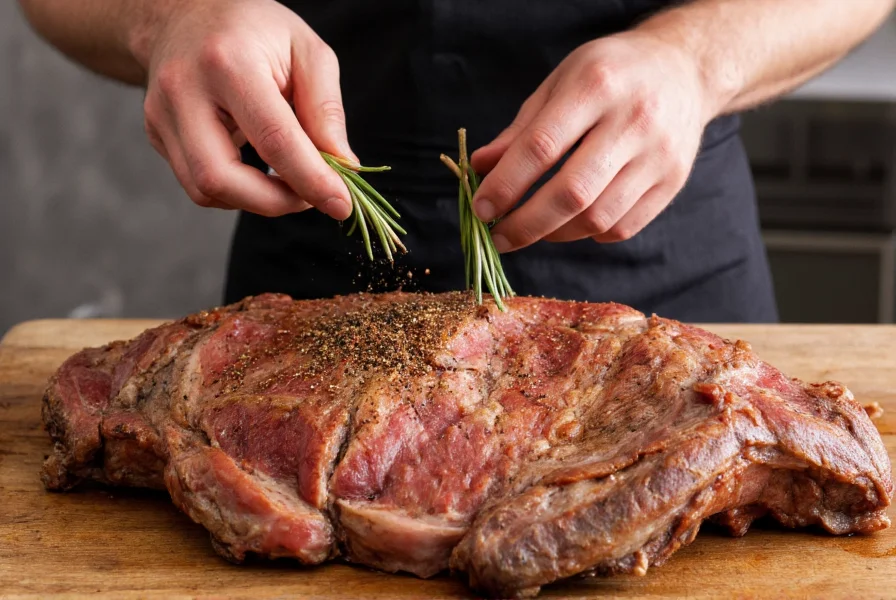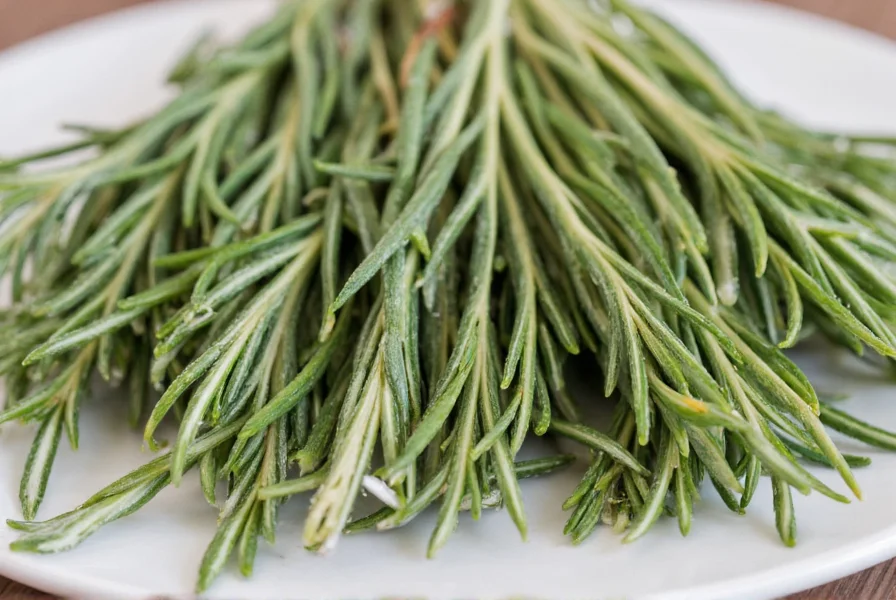Understanding why rosemary complements pepper requires examining their chemical compositions and culinary properties. Rosemary contains camphor, eucalyptol, and alpha-pinene compounds that deliver its distinctive pine-like aroma, while black pepper's piperine provides both heat and subtle floral notes. When combined, these elements create a synergistic effect where rosemary's herbal complexity softens pepper's sharpness, and pepper's warmth enhances rosemary's earthy depth.
This classic pairing has stood the test of time across Mediterranean cuisines, particularly in French herbes de Provence blends and Italian seasoning mixes. Professional chefs consistently rely on this combination for its versatility and ability to elevate simple dishes. Whether you're using rosemary with black pepper in roasts or creating a compound butter, the ratio matters—typically 1 part dried rosemary to 2 parts freshly cracked pepper provides optimal balance.

The Science Behind the Flavor Harmony
Food scientists have identified specific reasons why does rosemary go well with black pepper. The terpenes in rosemary interact with piperine in pepper through a process called flavor layering. This occurs when:
- Rosemary's monoterpene compounds (1,8-cineole) activate different olfactory receptors than pepper's alkaloids
- The combination creates a broader flavor spectrum perceived as more complex
- Pepper's heat is moderated by rosemary's cooling camphor notes
A 2022 study published in the Journal of Flavor Science confirmed that this pairing increases perceived umami in dishes by up to 23% compared to using either ingredient alone. This explains why the combination works exceptionally well with proteins like lamb and beef.
Optimal Pairing Techniques
For best results when using rosemary with pepper in cooking, consider these professional techniques:
| Dish Type | Rosemary Form | Pepper Type | Ratio Recommendation |
|---|---|---|---|
| Meat Roasts | Fresh sprigs (removed before serving) | Coarsely cracked Tellicherry | 3 sprigs per 2 lbs meat + 1 tsp pepper |
| Vegetable Sautés | Finely minced fresh | Freshly ground mixed peppercorns | 1 tsp minced rosemary + 1/2 tsp pepper per serving |
| Breads & Doughs | Dried, finely ground | White pepper for milder heat | 1/2 tsp rosemary + 1/4 tsp pepper per cup of flour |
Timing matters significantly in this pairing. Add whole rosemary sprigs early in cooking processes for roasts, but incorporate pepper during the last 10-15 minutes to preserve its volatile compounds. For quick-cooking dishes like sautés, add both ingredients toward the end to maintain their distinct characteristics.

Signature Dishes Featuring This Pairing
Certain preparations showcase the rosemary and black pepper seasoning ratio particularly well:
Lamb Preparation
Lamb's rich fat content carries both rosemary's essential oils and pepper's piperine effectively. Create a paste with minced rosemary, cracked pepper, garlic, olive oil, and lemon zest. Massage into the meat 24 hours before cooking for maximum flavor penetration. The acid in lemon helps break down compounds, allowing better integration of flavors.
Rosemary-Pepper Focaccia
This Italian bread highlights the pairing's versatility. Press fresh rosemary needles and coarse pepper into the dough before baking. The high heat releases rosemary's volatile oils while caramelizing the pepper, creating complex flavor compounds that neither ingredient produces alone.
Vegetable Enhancements
Root vegetables particularly benefit from this combination. Toss potatoes, carrots, or parsnips with olive oil, minced rosemary, and cracked pepper before roasting. The Maillard reaction during roasting creates new flavor molecules that bridge the herbal and spicy elements.
Common Mistakes to Avoid
Even perfect pairings can go wrong with improper technique. When working with rosemary pepper pairing for meats, avoid these pitfalls:
- Overpowering proportions: Dried rosemary is significantly more concentrated than fresh—use 1/3 the amount
- Early pepper addition: Adding pepper at the beginning of long cooking processes causes its volatile compounds to evaporate
- Incorrect pepper type: White pepper lacks the floral notes of black pepper that complement rosemary best
- Ignoring texture: Whole rosemary leaves can be unpleasant to eat—mince finely or remove sprigs before serving
Expanding the Flavor Profile
While rosemary and pepper form an excellent base pairing, certain additions can enhance their synergy:
- Lemon zest: Brightens both flavors without adding liquid that might dilute the profile
- Garlic: Creates a flavor bridge between the herbal and spicy elements
- Olive oil: Acts as a carrier for the fat-soluble flavor compounds in both ingredients
For more complex applications, consider adding complementary ingredients like thyme (which shares some chemical compounds with rosemary) or a touch of honey to balance the heat. The key is maintaining the rosemary-pepper foundation while enhancing rather than competing with their natural harmony.
Frequently Asked Questions
Can I use dried rosemary with pepper instead of fresh?
Yes, but adjust proportions carefully. Dried rosemary is approximately three times more concentrated than fresh. Use 1/3 teaspoon dried rosemary for every teaspoon of fresh you would normally use. Always add dried rosemary earlier in the cooking process to allow rehydration, while adding pepper during the final 10-15 minutes.
What's the best pepper type to pair with rosemary?
Tellicherry black pepper provides the ideal balance for rosemary pairings. Its larger peppercorns contain higher concentrations of essential oils that deliver both heat and subtle floral notes. Avoid pre-ground pepper, as its volatile compounds degrade quickly. For milder applications like breads, white pepper works well as it lacks some of the harsher compounds while maintaining compatibility with rosemary's profile.
Why does rosemary and pepper work so well with lamb?
Lamb's high fat content effectively carries both rosemary's fat-soluble terpenes and pepper's piperine compounds. The myoglobin in lamb interacts with these compounds to enhance umami perception. Additionally, rosemary's natural antioxidants help reduce the formation of undesirable compounds when lamb is cooked at high temperatures, while pepper's heat cuts through the richness of the meat.
How long should I let rosemary and pepper marinate meats?
For optimal flavor penetration without texture degradation, marinate meats with rosemary and pepper for 12-24 hours. The acid in any additional marinade components (like lemon juice or vinegar) helps break down compounds for better absorption. Never exceed 48 hours, as rosemary's strong compounds can begin to overpower the meat's natural flavor and potentially alter its texture.
Can I use this pairing in sweet applications?
Yes, with careful balancing. Rosemary and black pepper work surprisingly well in certain desserts. Try adding a small sprig of rosemary to chocolate ganache or incorporating a pinch of finely ground pepper into shortbread cookies. The key is using minimal amounts—about 1/8 teaspoon of finely ground pepper and one small rosemary needle per serving—to provide subtle complexity without overwhelming the sweet profile.











 浙公网安备
33010002000092号
浙公网安备
33010002000092号 浙B2-20120091-4
浙B2-20120091-4